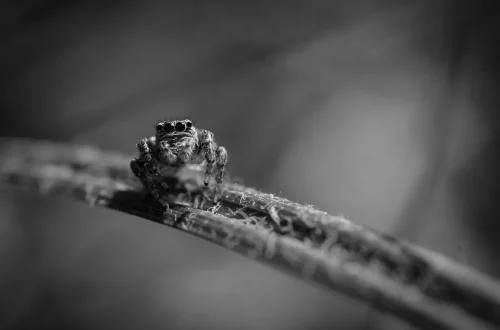
Understanding the Average Lifespan of a Green Cheek Conure
Understanding the Average Lifespan of a Green Cheek Conure
The green cheek conure, a small parrot known for its playful personality and vibrant plumage, has gained popularity as a companion bird among avian enthusiasts. These delightful creatures are not only adored for their charming antics but also for their capacity to form deep bonds with their human companions. As with any pet, understanding their lifespan is crucial for prospective owners, as it influences not only the commitment required but also the level of care and attention these birds need throughout their lives.
The lifespan of a green cheek conure can vary based on several factors, including genetics, diet, environment, and overall care. Owning a pet parrot is a long-term commitment that can span over a decade, and prospective owners should be well-informed about what to expect. Knowing the average lifespan helps owners prepare better and ensures they can provide the best possible care for their feathered friends. It’s essential to create a nurturing environment that promotes health and longevity, enabling these charming birds to thrive and live their best lives.
Factors Influencing Lifespan
The lifespan of a green cheek conure typically ranges from 10 to 30 years, depending on various influencing factors. One of the most significant contributors to a conure’s life expectancy is its genetics. Just like humans, birds can inherit certain traits from their parents, affecting their overall health and longevity. Responsible breeding practices can lead to healthier birds that tend to live longer.
Diet plays a crucial role in the health of green cheek conures. A well-balanced diet that includes quality pellets, fresh fruits, vegetables, and occasional seeds can contribute significantly to a bird’s lifespan. Poor nutrition, on the other hand, can lead to health issues such as obesity, fatty liver disease, and other serious conditions that may shorten a bird’s life. Therefore, understanding the dietary needs of these parrots is essential for their well-being.
Environmental factors also play a significant role. A safe, stimulating environment with adequate space for exercise and social interaction is vital. Green cheek conures are social creatures that thrive on interaction with their owners and other birds. Lack of mental stimulation and socialization can lead to stress, depression, and behavioral issues, ultimately affecting their lifespan.
Additionally, regular veterinary check-ups are crucial for monitoring health and preventing diseases. Many owners overlook the importance of routine vet visits, which can detect potential health issues before they become serious. By being proactive about health care, owners can significantly influence their bird’s longevity.
Common Health Issues in Green Cheek Conures
Like all pets, green cheek conures are susceptible to various health issues that can impact their lifespan. Understanding these common ailments is essential for all bird owners. One of the prevalent conditions affecting green cheek conures is psittacosis, a bacterial infection that can pose serious health risks. Symptoms can include lethargy, discharge from the eyes or nose, and difficulty breathing. Prompt veterinary attention is required to treat this condition effectively.
Another common issue is feather plucking, a behavioral problem often stemming from stress, boredom, or health concerns. This can lead to skin infections and further complications. Providing an enriching environment and addressing any underlying issues is crucial to prevent this behavior.
Obesity is also a significant concern for green cheek conures. A lack of exercise combined with a high-calorie diet can lead to serious health issues, including heart disease and diabetes. Ensuring that these birds have ample opportunities for exercise and providing a balanced diet can help maintain a healthy weight.
Respiratory infections are another risk for green cheek conures, often caused by exposure to drafts or poor air quality. Bird owners should ensure that their living environment is safe and conducive to respiratory health. Proper ventilation, avoiding smoke exposure, and minimizing stress can all contribute to a healthier living space for these birds.
Understanding these health issues and recognizing the signs early can help owners take preventive measures and seek timely veterinary care, which is essential for ensuring their green cheek conure lives a long and healthy life.
Creating a Healthy Environment for Your Bird
To maximize the lifespan of your green cheek conure, creating a healthy and stimulating environment is crucial. Firstly, the cage should be spacious enough to allow for movement and play. Conures are active birds that require space to fly and climb. A good rule of thumb is to choose a cage that is at least twice the wingspan of your bird in width and height.
Incorporating various toys and perches into the cage can also significantly enhance their quality of life. Birds thrive on mental stimulation, and a variety of toys can help prevent boredom and encourage natural behaviors such as chewing and climbing. Rotate toys regularly to keep your bird engaged and stimulated.
Environmental enrichment extends beyond the cage. Allowing supervised time outside the cage can provide essential exercise and mental stimulation. Establishing a safe area for your bird to explore can help fulfill their natural curiosity and desire for adventure.
Proper hygiene is another crucial aspect of creating a healthy environment. Regularly cleaning the cage and replacing bedding can prevent the buildup of bacteria and other harmful pathogens. Additionally, providing fresh water and a nutritious diet daily is essential for maintaining your bird’s health.
Finally, social interaction is vital for the emotional well-being of green cheek conures. These birds are known for their playful and affectionate nature, and spending quality time with them can strengthen the bond between pet and owner. Engaging in activities like training, playtime, and gentle handling can contribute to a happier and healthier bird.
Understanding the Commitment of Bird Ownership
Owning a green cheek conure is a long-term commitment that should not be taken lightly. These birds can live for many years, and potential owners should assess their readiness for such a responsibility. Understanding the needs of these intelligent and social creatures is essential for ensuring a fulfilling relationship.
Before bringing a green cheek conure into your home, consider your lifestyle and how it may impact your ability to care for a bird. These parrots require daily interaction and mental stimulation. If you have a busy schedule or travel frequently, consider how you will manage your bird’s needs during those times.
Moreover, educating yourself about their care, including diet, health, and behavior, is crucial for a successful ownership experience. Many resources are available, including books, forums, and avian veterinarians, which can provide insight and support. Engaging with other bird owners can also be beneficial as they can share experiences and advice.
Financial considerations should not be overlooked either. The costs of food, toys, veterinary care, and potential emergencies can add up. Being financially prepared is as important as being emotionally ready for the responsibilities of bird ownership.
In conclusion, understanding the average lifespan of a green cheek conure is only one aspect of responsible ownership. By considering the various factors that influence their longevity, being aware of common health issues, creating a healthy environment, and recognizing the commitment involved, potential owners can ensure that they provide the best possible life for their feathered friends.
**Disclaimer:** This article is for informational purposes only and should not be considered medical advice. For any health concerns regarding your pet, please consult a qualified veterinarian.




